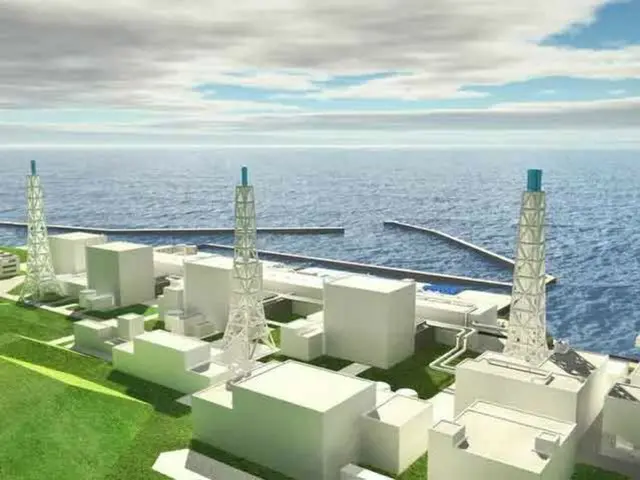The table describes it as "a last resort to prevent the destruction of democracy," but Kim Ki-hyun, leader of the ruling party "People's Power," said, "I was overwhelmed and angry because the leader of the opposition party was going to fast.
I'll give it to you,'' he criticized. Conflict between the ruling and opposition parties is intensifying in South Korea over ocean discharge. South Korean opposition parties, including the Democratic Party of Japan, have consistently opposed the release of treated water. same
The party also criticized the IAEA (International Atomic Energy Agency) Comprehensive Report, which concluded that ``Japan's approach to release is in line with international safety standards.''
Judgment. In July, some members of the same party visited Japan and held a protest rally in front of the prime minister's official residence. Last month, after the Japanese government decided to release the water into the ocean, Lee criticized the release as an act of ``terrorism.'' "Japan is radioactive contamination.
It is trying to bring irreparable disaster to South Korea and the Pacific Rim countries by releasing contaminated (treated) water." He also directed his criticism at the Yun Seo-gyul (Yun Seok-yue) administration.
He expressed his intention to pursue the responsibility of the Yoon administration, saying that there are no scientific or technical problems. The release began on the 24th of last month, and the South Korean government, which had long expressed a position of accepting this
Prime Minister Kuss releases a statement. ``It would be best not to release contaminated (treated) water, but the consensus of experts around the world is that there is no need for the public to be overly concerned in the current situation.''
said. He then told the public, ``The IAEA, the International Atomic Energy Society, and Korean experts believe that if the release is based on the measures announced by the Japanese government, there is no reason for South Korea to be greatly concerned.
. I hope you trust the government and trust the science," he said. Gallup Korea, a South Korean polling company, surveyed 1,002 people over the age of 18 across South Korea from the 29th to 31st of last month.
In the survey, 75% of respondents said they were "concerned" about the release of treated water into the ocean. In addition, 60% of the respondents answered that they were "reluctant to eat seafood."
The South Korean government is trying to allay concerns among its people, and the presidential dining room serves sashimi and grilled Korean flounder and black sea bream as a countermeasure against harmful rumors.
They have started offering mackerel, etc. On the 28th of last month, President Yoon met with Prime Minister Han over a seafood lunch. South Korea prohibits the import of seafood from eight prefectures, including Fukushima;
Goods have also been affected by rumors. The opposition Democratic Party of Japan held a demonstration condemning the release. Representative Lee announced on the 31st, ``As a last resort to prevent the destruction of democracy, I will begin an indefinite fast from today.''
I will,” he declared. That afternoon, he and opposition members held a sit-in protest in front of the Diet. Representative Lee also linked the Yun administration to the ocean discharges, ``threatening the safety and property of the people, and threatening maritime sovereignty.''
"Rather than resisting Japan's nuclear wastewater dumping terrorist attack, it became an accomplice," he said. What significance does fasting by politicians have in South Korea? The Korean newspaper Chosun Ilbo reports, ``Korea
``Fasting in opposition to the former authoritarian regime forced the government to reconsider its actions and paved the way toward democratization.''
) Former President rallied his forces in May 1983 by holding a 23-day fast to protest against the then Chun Doo-hwan government and demand democracy. This is considered to be a typical example of a fasting struggle.
I will,” he explained. However, Lee's fasting has been met with disdain from the ruling party ``People's Power''. Kim Ki-hyun, the representative of People's Power, said, ``While leading a huge opposition party, I abandoned my job.''
It's no different than what you're doing. "What the people want from the main opposition party is proper politics, not fasting." In South Korea, the regular National Assembly has been in session since the 1st, and Representative Kim said, ``There are a lot of pending issues and legislation.
Even though deliberations on the bill and the budget are about to take place, the representative of the main opposition party is acting irresponsibly, and the people are saddened."
In the aforementioned opinion poll, the approval rating for ``Together with the Democratic Party'' was 27%, the lowest since the inauguration of the Yoon administration. in Korea
Even as concerns about the release of treated water rise, it seems that the response of the Democratic Party of Japan to this issue is not highly appreciated by the public. What is important now is to have constructive debate in the Diet.
Isn't that what we should do?
2023/09/04 09:05 KST
Copyrights(C)wowkorea.jp 5

